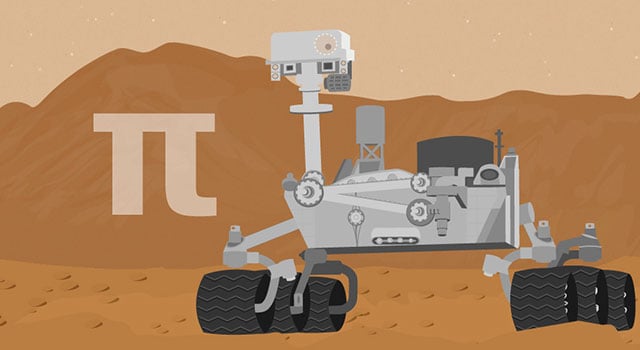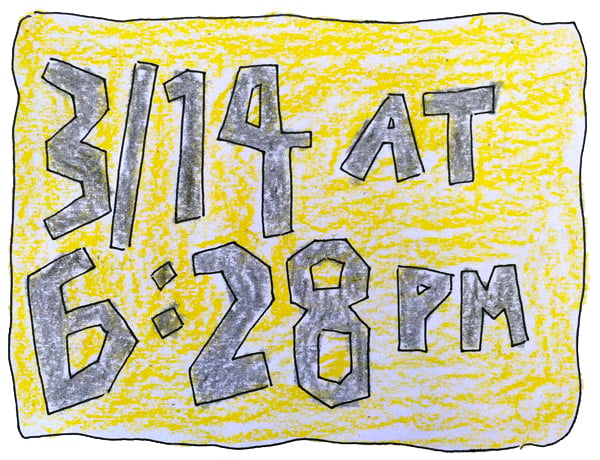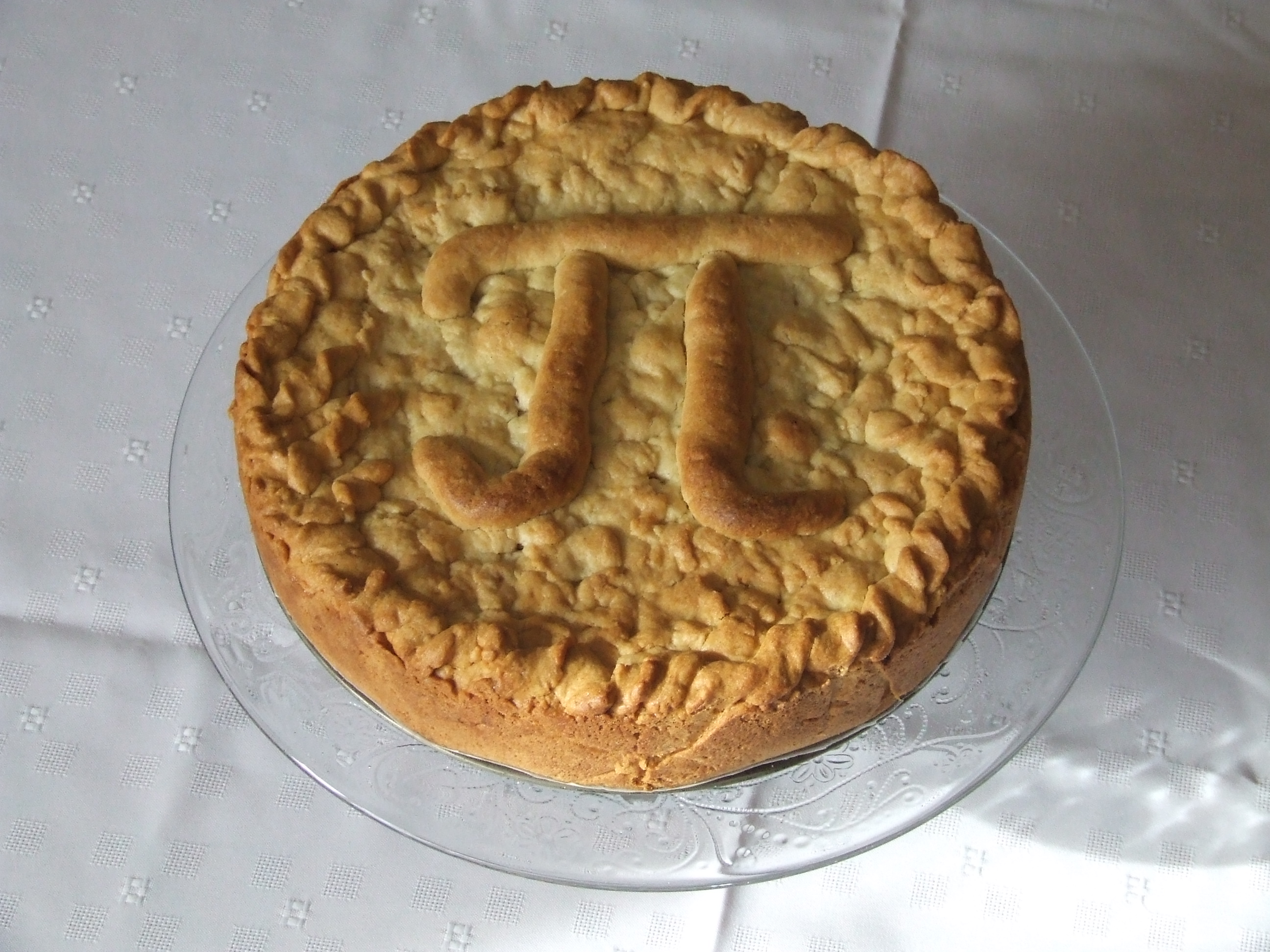
You don’t have to be a fan of math to get excited about Pi (“π”) Day. While the event, which is also Albert Einstein’s birthday (139th this year), may start with some calculations, it is more than likely to conclude with a slice or two of delicious pie. The holiday, which celebrates the ratio of the circumference of a circle to its diameter, is held every March 14, because the infinite number is widely recognized as 3.14.
The tradition of honoring the irrational number, that seems to have no pattern despite being calculated to over thirteen trillion digits beyond its decimal point, began at San Francisco’s Exploratorium Museum. On March 14, 1988, physicist Larry Shaw convinced his colleagues to mark the day by marching around one of the museum’s circular spaces and consuming fruit pies. The celebration was made official in 2009 when the US House Representatives designated March 14 as Pi Day.

Today, Pi Day is observed in many creative ways. Students at the California Institute of Technology in Los Angeles host a pie-eating event which begins at 1:59 AM PST and features 26 pies each of five different flavors of the popular dessert. Though that might seem random, the date (3.14), time (159), number of pies (26), and number of varieties (5) recreate the first nine digits of pi: 3.14159265!
Prospective students at the Massachusetts Institute of Technology (MIT) eagerly await the day every year to find out if they have been accepted to the elite university. However, instead of sending out the notifications at 3:14 PM EST, when most kids are still at school, the institution waits till 6:28 PM EST, which, as you may have figured out, is pi multiplied by 2. Referred to as Tau, the number is believed to be much more reliable than pi by some experts and even has its own celebration on June 28. Since 2017, MIT has also used the day as a fundraiser to support its students, faculty, and programs.

Corporations get into the spirit as well. Search giant Google always has a special doodle in honor of this unique number. Organic grocery chain Whole Foods celebrates the day with a $3.14 discount on their freshly-baked pies. East Coast-based & Pizza takes the festivities to a whole new level by transforming some of their stores into pop-up wedding chapels, complete with flowers and decorations, on March 14. Those wishing to take advantage can apply for a spot online and, if accepted, show up at the specified location with the wedding party. After the ceremony, guests enjoy a delicious feast of champagne and pizza!
Since 2015, to encourage more women and girls to get involved in the fields of science, technology, engineering and mathematics (STEM), female television meteorologists have all been wearing the same dress on Pi Day. This year, they want people of all backgrounds to join this burgeoning movement by wearing purple clothing on March 14.

NASA’s Jet Propulsion Laboratory will host its fifth annual “Pi in the Sky Challenge,” which invites aspiring scientists from 5th to 12th grade to solve some of the same problems NASA scientists and engineers do, using pi. This year’s questions include measuring the craters above the surface of Mars and the size of the moon’s shadow during a total solar eclipse.
The town of Princeton, New Jersey, where Einstein resided from 1935 until his death in 1955, celebrates the occasion with multi-day festivities that end on March 14. Visitors can participate in concerts, shows, as well as pie-eating, pi-recitation, and Einstein lookalike contests. The San Francisco Exploratorium, which began the trend, continues to mark the occasion with a free community day that begins with several pi-related activities and ends with a trip to the pi shrine and a slice of delicious pie!

Though the pie eating (and throwing) traditions are relatively recent trends, pi has been around for thousands of years. It was first used by the Babylonians about 4,000 years ago to calculate the area of a circle by taking three times the square of its radius, giving pi a value of 3. The ancient Egyptians came closer to the real number with 3.165 in 1650 BC. Archimedes of Syracuse (287-212 BC) was the first to calculate pi mathematically. However, the Greek scholar was well aware that his number, which varied between 3 1/7 and 3 10/71, was just an approximation. Given that the numbers were all derived without any help from computers, their proximity to the true value of pi is truly astounding!
